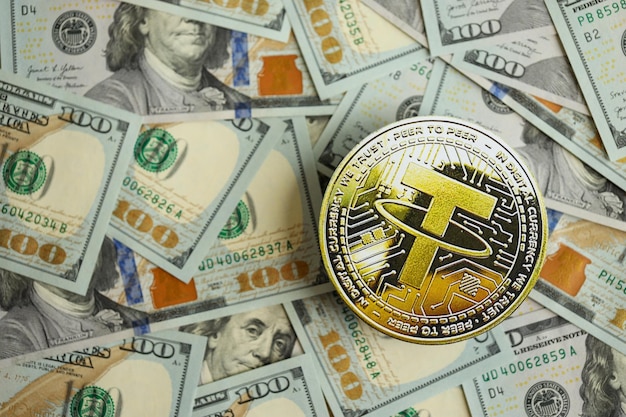
Hong Kong's Virtual Money Shuffle: Why Entrepreneurs Turn to South America Amid License Wars
Regulatory Tug-of-War Behind the Virtual Asset Market Rampage
"Hong Kong's Virtual Asset Trading Volumes Record Largest Year-on-Year Growth Ever!" Dr. Stephen Yip, Executive Director of the Intermediaries Division of the Securities and Futures Commission (SFC), in his speech at FinTech Week 2024, revealed the new battleground for this international financial center. However, while officials are shouting for a "robust regulatory framework", a group of local cryptocurrency entrepreneurs are choosing to go far away from home - behind this is a survival game of compliance costs and policy ambiguity.
Life and death under the licensing regime
Currently there are only 3 licensed virtual asset trading platforms in Hong Kong and 14 applicants are still undergoing vetting, of which the 11 "deemed licensed" transitional operators are the most concerned. The SFC has shifted from a paper-based approach to "risk-based on-site inspections", focusing on core areas such as custody of client assets and anti-money laundering (AML) procedures.
Even more interesting is the "three-stage gateway" for new applicants:
- Commitment to improve deficiencies raised by regulators
- Obtaining a restricted license for trial operation
- Restrictions lifted after third-party review
This "get on the train first and make up the ticket later" model seems to leave room for innovation, but it puts small and medium-sized operators in a dilemma. An unnamed industry insider said, "Each on-site inspection may impose new compliance requirements, and the cost of rectification can be millions of dollars, which is simply not a game that grassroots teams can afford to play.
The Ice and Fire of the Swap Shop Ecology
While the policy aura is focused on trading platforms, another invisible battlefield is being played out on the streets and alleys. There are currently more than 1,000 MSO-licensed money exchanges in Hong Kong, many of which also offer cryptocurrency exchange. But 0xpineapple, who has been in the industry for ten years, says bluntly, "The nature of Hong Kong's OTC market is to provide 'access to the sea' for mainland capital.
The entrepreneur, who has helped a number of organizations apply for financial licenses, decided to close his Hong Kong business last year and move to South America. He points out a key contradiction:
- Compliance Cost Black HoleSFC Stored Value Payment Instrument License: It takes more than half a year to apply for an SFC Stored Value Payment Instrument License, "the crypto market is changing rapidly, customers can't wait for half a year for you".
- Policy Blurring Red Lines: MSO license allows fiat currency conversion, but "the regulations have never explicitly drawn a safe zone" when it comes to cryptocurrencies.
- Survival Space SqueezeLicensed Replacement Shops: Average Monthly Operating Costs Exceed HK$500,000, Yet They Have to Compete with "Gray Area" Traders
"In Hong Kong, you could be operating legally today and be swept out of business by new regulations tomorrow." 0xpineapple's concerns are not unfounded. 2024 Policy Address proposed the development of a digital securities market, but there is still a lack of details on the most basic OTC regulation.
Regulatory Gaming in South America vs Hong Kong
While Hong Kong entrepreneurs are struggling in the policy fog, 0xpineapple's team has already obtained the first Crypto ATM license in Brazil and built a compliant payment system in the Philippines. He compares the regulatory differences between the two places:
| Markets | License Approval Timeframe | KYC requirements | Tax convergence |
|---|---|---|---|
| fact | More than 6 months | faintly | Unspecified |
| Philippines | Within 30 days | Mandatory Identity + Source of Funds Declaration | Transaction data is directly linked to the tax system |
| Brazilian | Within 45 days | Classification and Verification System | Encryption of the profits tax reporting mechanism |
"In Manila, the regulators will walk you through the compliance process, but in Hong Kong, you're always guessing at the bottom line." This difference in certainty makes the South American market's young demographic bonus (Brazil's under-35 population is 54%) even more attractive.
The Formula for the Future in the Regulatory Sandbox
Hong Kong is not doing nothing. The HKMA has launched the "Project Ensemble" sandbox to test interbank clearing of monetized assets, and a new regulatory framework for fiat stabilized currencies is also in the works. Dr. Stephen Yip has also announced the establishment of a Licensed Platforms Advisory Group, which will allow the industry to participate directly in policy making.
But how can these top-level designs be put into practice? The key lies in resolving three major conflicts:
- Speed of Innovation vs Vetting Process: When the DeFi protocol is iterated on a weekly basis, does the license approval, which can take months, apply?
- International Standards vs Local Characteristics: Compliance with FATF anti-money laundering requirements while maintaining special regulation of Mainland funds
- Organizational Circuit vs Grassroots Ecology: How to avoid the market being monopolized by a few licensed giants?
An executive of a licensed exchange privately disclosed, "Our annual expenditure on compliance accounts for 15% of our revenue, not including the hidden costs of responding to surprise inspections. This high threshold model is reshaping the power structure of Hong Kong's virtual asset market.
Survive or Perish? An Entrepreneur's Final Gamble
When asked if he would return to the Hong Kong market, 0xpineapple gave a pragmatic answer: "I'll wait until I've earned enough to cover my compliance costs in South America". These words reflect the harsh reality - the future of Hong Kong's virtual asset market may not depend on how perfect the top-level policies are, but on whether there is a gap for small and medium-sized operators to survive.
As one industry veteran put it, "What we want is not more licenses, but a map of the track that we can understand". This tug-of-war between regulation and innovation has just begun.
Disclaimer: The contents of this article are for informational purposes only and should not be construed as any form of promotion, investment advice, or invitation, solicitation or recommendation of any investment product.
The contents of this article have been reprinted.offensiveIf there is anything wrong, please contact us and we will remove it immediately, thank you.
Readers should make their own assessment and seek professional advice.





